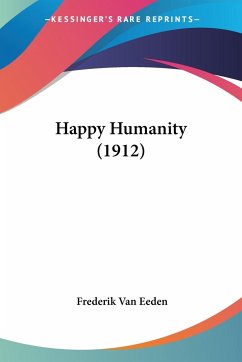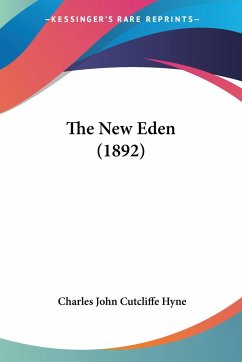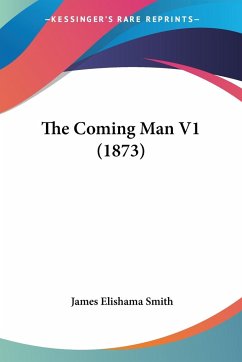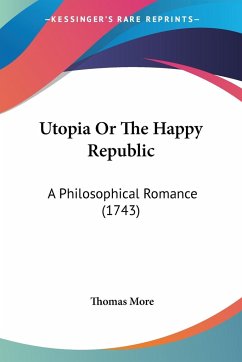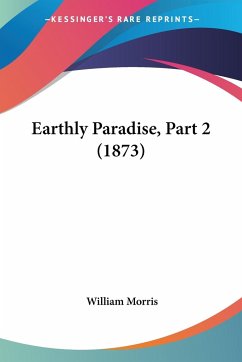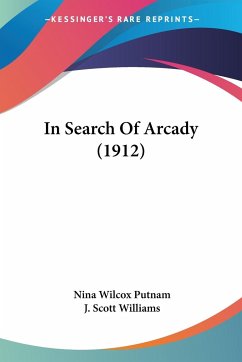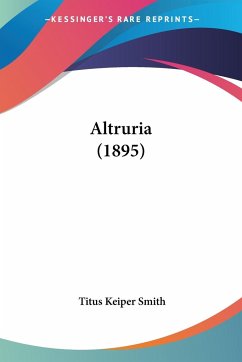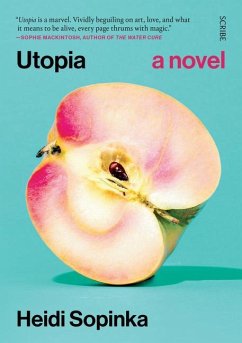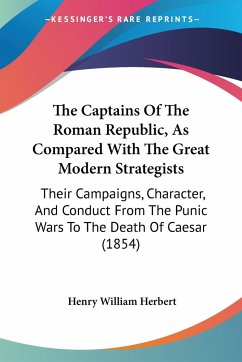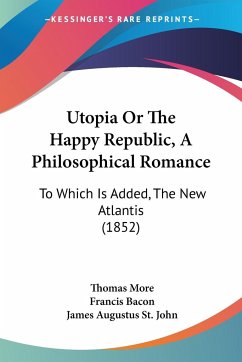
Utopia Or The Happy Republic, A Philosophical Romance
To Which Is Added, The New Atlantis (1852)
Versandkostenfrei!
Versandfertig in 1-2 Wochen
32,99 €
inkl. MwSt.

PAYBACK Punkte
16 °P sammeln!
Utopia Or The Happy Republic, A Philosophical Romance: To Which Is Added, The New Atlantis (1852) is a book written by Thomas More, a prominent philosopher and statesman of the sixteenth century. The book is divided into two parts, with the first part being a fictional account of a perfect society called Utopia. The second part is an account of a fictional island called Bensalem, which is depicted as a utopian society.In the first part, More describes the society of Utopia, which is a place where there is no private property, no money, and no social class distinctions. The people of Utopia liv...
Utopia Or The Happy Republic, A Philosophical Romance: To Which Is Added, The New Atlantis (1852) is a book written by Thomas More, a prominent philosopher and statesman of the sixteenth century. The book is divided into two parts, with the first part being a fictional account of a perfect society called Utopia. The second part is an account of a fictional island called Bensalem, which is depicted as a utopian society.In the first part, More describes the society of Utopia, which is a place where there is no private property, no money, and no social class distinctions. The people of Utopia live in communal houses and work together to provide for the common good. The society is governed by a group of elected officials who are responsible for making decisions for the community.In the second part, More describes the society of Bensalem, which is a place where science and technology are highly valued. The people of Bensalem are known for their advanced knowledge in various fields, including medicine, agriculture, and navigation. The society is governed by a group of wise men who are responsible for making decisions for the community.Overall, Utopia Or The Happy Republic, A Philosophical Romance: To Which Is Added, The New Atlantis (1852) is a thought-provoking book that explores the concept of a utopian society. More's writing is insightful and imaginative, and his descriptions of the two societies are both fascinating and thought-provoking. This book is a must-read for anyone interested in philosophy, politics, or social issues.With An Analysis Of Platö¿¿¿¿¿¿s Republic, And Copious Notes.This scarce antiquarian book is a facsimile reprint of the old original and may contain some imperfections such as library marks and notations. Because we believe this work is culturally important, we have made it available as part of our commitment for protecting, preserving, and promoting the world's literature in affordable, high quality, modern editions, that are true to their original work.



